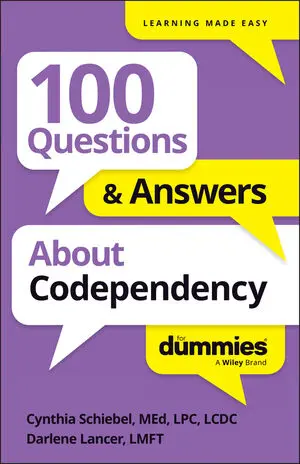Studies show that healthy guilt encourages people to have more empathy for others, to take corrective action, and to improve themselves. Shame, on the other hand, makes you feel inferior, inadequate, or bad about who you are versus what you did.
Unhealthy guilt impedes self-acceptance. Self-forgiveness is self-essential to self-esteem. Yet for many codependents, self-acceptance remains elusive because of unhealthy guilt — sometimes for decades or a lifetime. It may be an unrelenting source of pain.
You might hold a belief that you should feel guilty and condemn yourself — not once, but over and over — or guilt may simmer in your subconscious. Either way, this kind of guilt is insidious and self-destructive and can sabotage your ability to find happiness and achieve your goals.
Here are things you should examine when you feel guilty:
-
Guilt shouldn’t drag on and preoccupy you. When guilt is irrational and not absolved, it can lead to shame. Instead of enhancing empathy and self-improvement, it has the opposite effect. It causes greater self-preoccupation and undermines both the self and relationships. It also promotes aggression and depression.
-
You may be punishing yourself unnecessarily. Are you harder on yourself than others? Would you keep punishing someone over and over for a mistake, or would you forgive them?
-
Guilt causes anger and resentment, not only at yourself, but toward other people in order to justify your actions. Anger, resentment, and guilt sap your energy. They keep you stuck in the past and prevent you from moving forward. A better approach is to think of your mistakes as learning opportunities. To be sure, you’ll have another chance to do things differently next time.
-
Guilt about your thoughts and feelings impairs rather than promotes self-acceptance. You may feel guilty not only for your actions, but also for your thoughts (for instance, wishing someone pain, misfortune, or even death); your feelings (like anger, lust, or greed); or your lack of feelings (such as not reciprocating love or friendship or not feeling grief over the loss of someone close).
-
You may be feeling guilty for things others have done. Because of a lack of boundaries and low self-esteem, it’s common for codependents to take the blame for others’ behavior. Although irrational, you may feel guilty for the thoughts, attributes, feelings, and actions of someone else.
-
You may be adopting others’ projections. You might judge yourself based upon the blame or false accusations emanating from others, which you accept to be true. For example, an abuser or addict may blame you to avoid responsibility, but you take on that blame. If your partner is a narcissist, they might accuse you of being selfish, even though your partner is the one who is selfish.
-
Rationalizing or ignoring your guilt helps only temporarily, but it isn’t the same as self-forgiveness. Alternatively, beating yourself up prolongs guilt and shame and damages your self-esteem. The best approach is to face what you did, accept responsibility, do some self-examination, and take remedial action.






